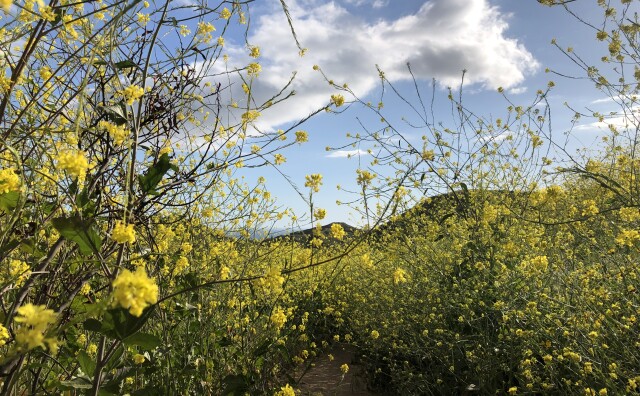Last January, California’s landmark composting law went into effect after being passed back in 2016. The goal is to keep food scraps out of landfills, where they decompose and release methane, a potent gas heating up the planet. That’s why landfills are the state’s third-largest source of methane.
The program, officially called “organics recycling,” was launched as a pilot in 2018 with 18,000 homes across the city. Now it has expanded to all 750,000 single-family households served by L.A. Sanitation.
This means that all Angelenos in a single-family home should now:
- Put all food scraps, including cooked meat, bones, fish and small amounts of grease, into their green bin.
- Pick up a free kitchen pail from L.A. Sanitation. Find out where to do that here.
- Read more about how LA's compost program works for single-family homes here.
But the city’s biggest challenge is getting the program to renters and commercial businesses, said Daniel Meyers, a division manager at L.A. Sanitation who oversees that side of the program.
“Organic service does come at an additional cost,” he said. “So there's a lot of work with each customer to right-size their account.”
The food waste will either be composted (more on that here) or sent to facilities that create biogas, which is classified as a renewable energy. To do that, waste companies need to purchase green bins and build infrastructure, which will make your trash bill go up depending on the size of the property or business. Most cities estimate trash bills could go up as much as 10% to 20%, according to a survey by the League of California Cities.
Composting at apartments and businesses
Unlike single-family homes, property managers and business owners each need to enroll in the program with recycLA. Enrolling is required by state law and city code, but enforcement won’t start until next year and will be a “last resort,” Meyers said.
-
We visited LA's largest apartment complex to find out how they're making food waste collection work for their tenants.

Meyers said about 2,000 apartments and 4,800 businesses are currently enrolled. But there’s a long way to go: the city serves a total of 67,000 commercial customers.
Meyers said he often receives calls from renters who want to be part of the program, but it’s landlords who have to enroll. Still, renters can help speed up the process by telling their landlord they want in on the program, he said.
“Although residents in a multi-family complex aren't the ones necessarily to make the decision, they can help by really engaging,” Meyers said. “Make it known that organics recycling is something that is wanted and not seen as necessarily a burden.”
The cost of the unfunded state law has been a concern for individuals, businesses, property managers and local governments alike. State legislators passed a law last year to provide financial support for local governments as they roll out the mandated program.
Local community composting
In the meantime, if you're eager to get composting, you can find a local community composter or compost on your own at home. Visit LA Compost for community compost sites near you, or read our guide on community composting.
Tips to prevent odors and pests

-
It's gonna be Yankees v the Boys in Blue
-
What candidates can — and can't — say they do
-
Nonprofit's launching fundraiser to keep it afloat










